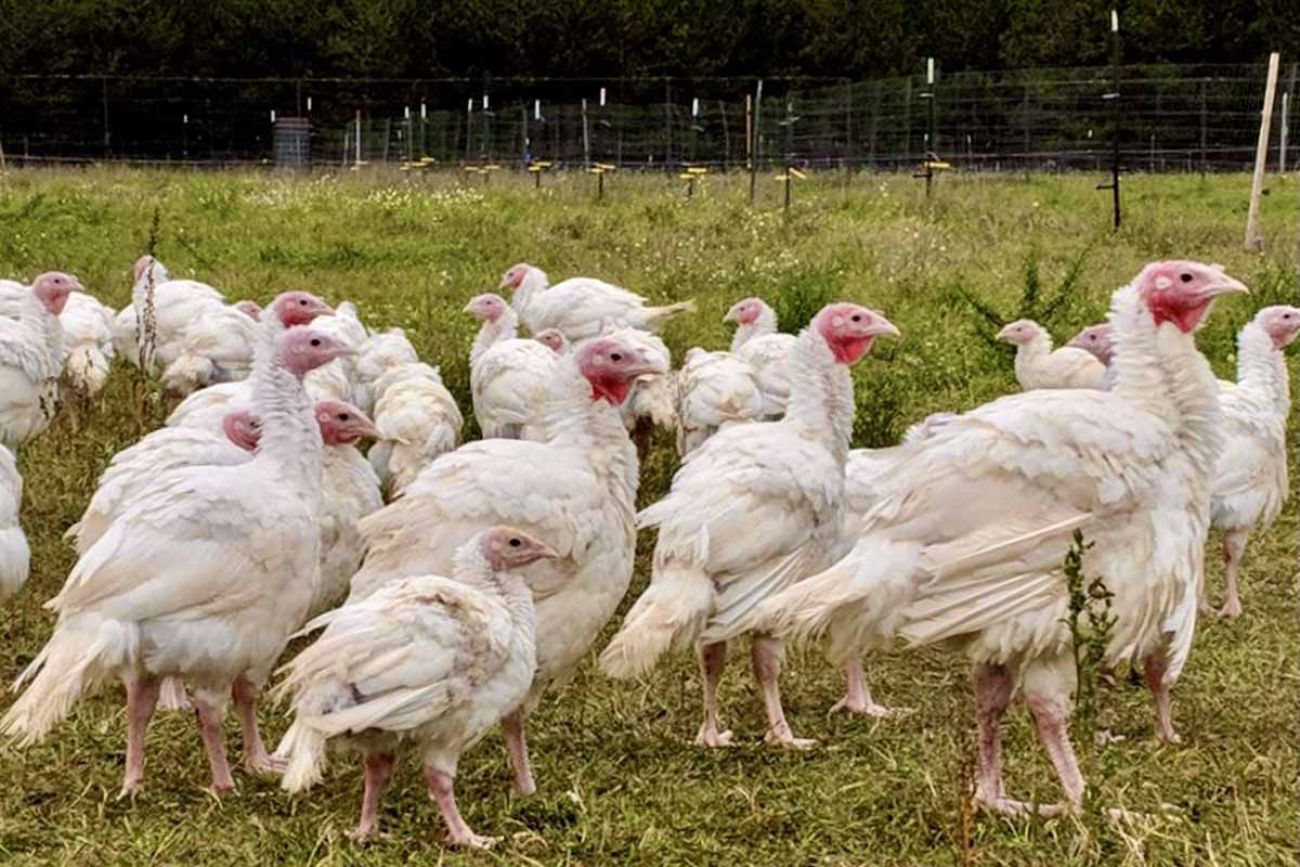Michigan farms compete with imported turkeys during Thanksgiving

LANSING — When you reminisce about the Thanksgiving season, it’s easy to envision a belly stuffed with turkey, then leaning all the way back in your favorite recliner for a nap.
The hard work of small-town turkey farmers around Michigan is likely to go unnoticed when many consumers head to the supermarket for their frozen bird, but family farms are promoting happier and healthier turkeys.
Waneta Cook from the Cook Family Farm in Gaylord is one such advocate.
Related:
- Firearm deer hunting season starts Wednesday in Michigan: What to know
- Michigan Senate votes to override local decisions on wind, solar energy
- Michigan farmers eye upcoming federal Farm Bill
With 11 children, most of whom are married, — and over 350 turkeys — the Cook family all comes home to handle processing on the farm with delicacy and seriousness, she said.
“For the most part, all of our turkeys are picked up by families who are going to be putting them on their table, so buying local for us is extremely critical to the success of our season,” Cook said.
“Our farming is a lot of hard work, but it’s also very rewarding when you know you’re able to provide a product that is very difficult to find,” she said.
According to the Cook Family Farm, each turkey chick is treated with care and a healthy diet.

“For somebody who is concerned about how the turkeys have been raised and what they’ve been eating, you aren’t going to know that if buying from a grocery store,” she said. “The best thing you can do is find a local farm.”
What about dining on wild turkey this Nov. 23?
That’s unlikely.
“Turkey hunting and Thanksgiving don’t have a very tight connection in Michigan,” said Department of Natural Resources game bird specialist Adam Bump.
The state’s wild turkey population is “one of wildlife’s conservation success stories,” Bump said.
“They were eliminated — extirpated is what we would call it (in the 1900s). In Michigan, we’ve restored that, and now populations are booming,” he said. “We can have healthy populations and hunting opportunities all together.”
There are now around 200,000 of them.
“For fall turkey hunting, you might get a few people that decide they’re going to go out and try to harvest a turkey for Thanksgiving, but I think the majority of our fall turkeys are taken by deer hunters,” Bump said.
According to Michigan Allied Poultry Industries, based in East Lansing, consumption of domestic turkeys has increased over 104 percent since 1970. An average of 5.3 million turkeys are produced annually in the state, 70 percent of them raised in Ottawa County.
Most frozen turkeys in supermarkets come from Minnesota.
Cook said she prefers eating domestic turkeys over wild ones. “We have tasted wild turkey, but we are able to control exactly what their diet is (on the farm). If they’re in the wild, you don’t have any idea what they are eating.”
Maxbauer’s Meat Market in Traverse City is another small-town business that pushes for shopping locally.
It expects to sell over 600 turkeys this year, said Sean Torres, the main manager.
“Everything we make here is homemade, all from scratch. You can get your whole Thanksgiving turkey meal here. Our turkeys are all natural, never been frozen, and fresh,” he said. “I don’t even get them until the week of the holiday.”
This story was originally published by the Capital News Service.
Michigan Environment Watch
Michigan Environment Watch examines how public policy, industry, and other factors interact with the state’s trove of natural resources.
- See full coverage
- Subscribe
- Share tips and questions with Bridge environment reporter Kelly House
Michigan Environment Watch is made possible by generous financial support from:
Our generous Environment Watch underwriters encourage Bridge Michigan readers to also support civic journalism by becoming Bridge members. Please consider joining today.
See what new members are saying about why they donated to Bridge Michigan:
- “In order for this information to be accurate and unbiased it must be underwritten by its readers, not by special interests.” - Larry S.
- “Not many other media sources report on the topics Bridge does.” - Susan B.
- “Your journalism is outstanding and rare these days.” - Mark S.
If you want to ensure the future of nonpartisan, nonprofit Michigan journalism, please become a member today. You, too, will be asked why you donated and maybe we'll feature your quote next time!






